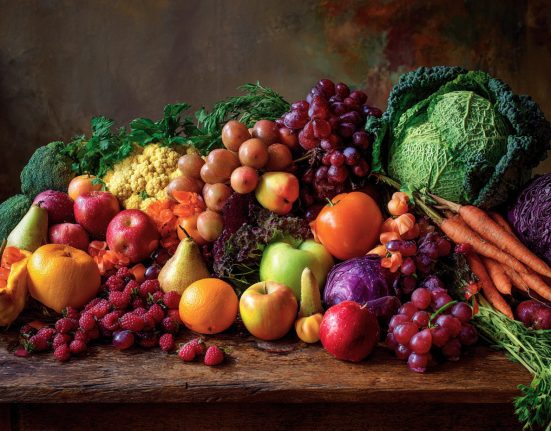High-Density Lipoprotein (HDL) cholesterol or “the good cholesterol”, plays a crucial protective role in cardiovascular health. HDL helps transport excess cholesterol from the bloodstream to the liver, where it is metabolized and excreted. A Harvard study suggests t that higher levels of HDL cholesterol are associated with a lower risk of cardiovascular disease. Genetics do influence HDL levels, but lifestyle choices, diet and exercise, have a significant impact as well. Incorporating HDL-boosting foods, along with healthy lifestyle practices, can support heart health. Below we mention 7 proven foods that may help raise HDL cholesterol.
Avocados
An NIH study found that avocado intake significantly increased HDL cholesterol by an average of 2.84 mg/dL. Avocados are a nutrient-dense fruit rich in monounsaturated fats. Beyond fats, they provide fiber, potassium, and a variety of antioxidants that help reduce oxidative stress and inflammation, both risk factors for cardiovascular disease.
– Add sliced avocado to your morning toast
– Blend half an avocado into a smoothie with spinach or banana
– Dice or mash avocado as a topping for salads
– Prepare simple guacamole by adding salt, lime juice, and chopped herbs in mashed avocado
Fatty fish
Fatty fish such as salmon, mackerel, sardines, and trout are excellent sources of omega-3 fatty acids. These long-chain polyunsaturated fats improve HDL functionality, enhance reverse cholesterol transport, and reduce triglyceride levels. NIH research indicates Omega-3s have been found to improve HDL functionality, enhancing its role in removing LDL cholesterol from the bloodstream.- Grill or bake salmon or mackerel with olive oil, herbs, and spices- Add canned sardines or tuna to salads or whole-grain sandwiches- Include fish in soups or stews for an easy nutrient boost
Nuts
Nuts such as almonds and walnuts are rich in monounsaturated and polyunsaturated fats, as well as fiber. NIH study links regular nut consumption with increased HDL cholesterol, improved LDL cholesterol levels, and reduced cardiovascular risk. A handful of nuts daily can provide significant heart-protective benefits. Nuts’ versatility makes them easy to include in an everyday diet.
– Snack on a small handful of nuts between meals
– Add chopped nuts to oatmeal, yogurt, or smoothie bowls
– Use nut butters like almond or cashew butter on whole-grain toast
– Include nuts as a topping for salads or roasted vegetables
Chia or flax seeds
Chia and flax seeds, in particular, are high in alpha-linolenic acid, which is a plant-based omega-3 that supports cardiovascular health. NIH Studies have found that including seeds in the diet can help improve HDL cholesterol levels while lowering LDL cholesterol.
– Sprinkle chia or flax seeds over oatmeal, yogurt, or smoothie bowls
– Add pumpkin or sunflower seeds to salads or roasted vegetable dishes- Mix seeds into homemade granola or energy bars
Olive oil
This core component of the Mediterranean diet has a heart-friendly reputation. Extra-virgin olive oil, especially, contains heart-healthy monounsaturated fats and polyphenols that improve HDL cholesterol levels and reduce inflammation. NIH study demonstrates that replacing saturated fats with olive oil in the diet not only increases HDL but also improves the overall lipid profile and lowers oxidative stress.
– Use as a primary cooking oil for sautéing or roasting
– Drizzle over salads or roasted vegetables
– Mix with herbs for a simple, heart-healthy dressing
Soy
Soy products such as tofu, edamame, and soy milk contain high-quality plant protein and isoflavones, which are plant compounds with antioxidant and estrogen-like effects. A PubMed study indicates that regular soy protein intake can modestly raise HDL cholesterol levels and reduce LDL cholesterol. Incorporating soy as a protein source instead of red meat can not only enhance HDL levels but also help with weight management and blood sugar control.
– Use tofu in stir-fries, salads, or soups
– Snack on steamed edamame with a pinch of salt
– Include soy-based protein in bowls with grains and vegetables
Oats and whole grains
Oats and other whole grains like barley, quinoa, or brown rice can provide consistent, heart-protective benefits. As per NIH study, the effect of whole grains is less direct on HDL cholesterol, these can improve overall lipid profiles and reduce cardiovascular risk.
– Start the day with oatmeal topped with fruits, nuts, or seeds
– Add cooked whole grains to salads, soups, or grain bowls
– Replace refined grains with whole grains like quinoa, barley, or brown rice
Lifestyle factors are equally important
While diet plays a key role in raising HDL cholesterol, lifestyle factors are equally important for heart health. Engaging in regular aerobic exercise, maintaining a healthy body weight, avoiding tobacco and drinking are equally important. So, to expect results, it is important that one incorporates these habits along with a healthy diet. Individuals with other medical conditions must consult with their healthcare professional before consuming these above mentioned foods.








